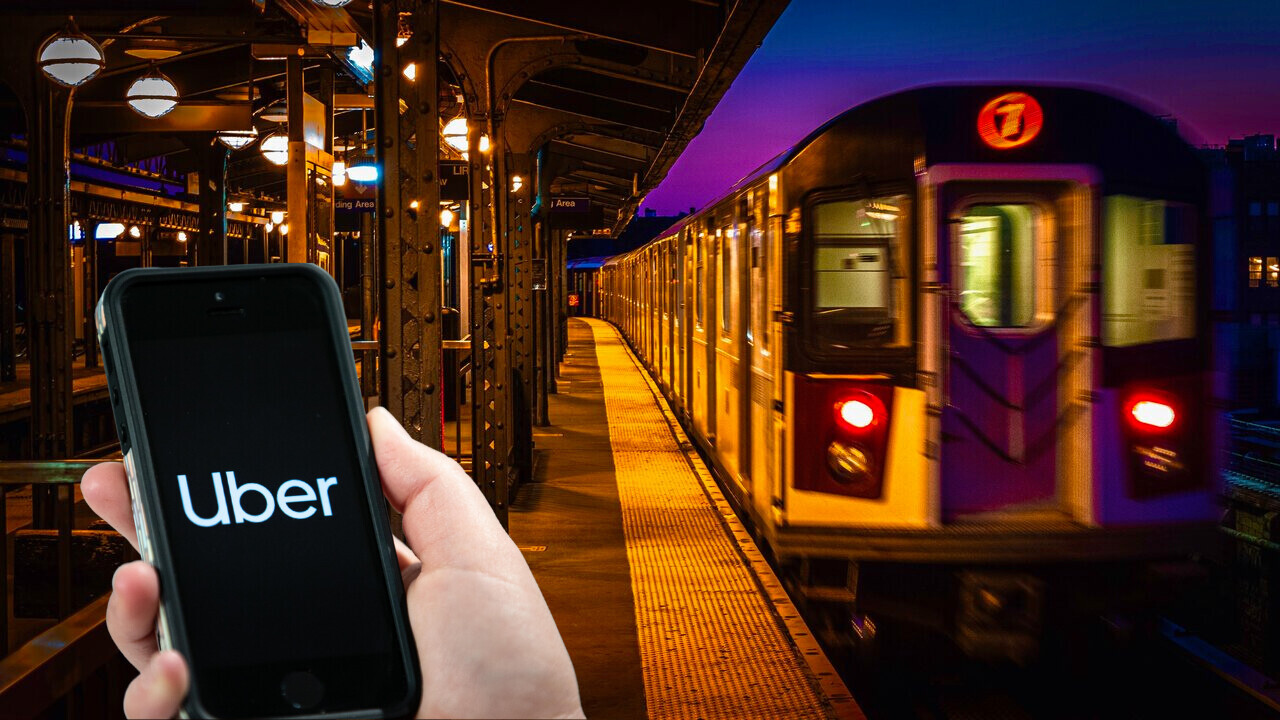
“Everyone wants free public transport, but no one wants to pay for it” is a claim I often hear writing about mobility. But an equally pressing challenge is often excluded from the conversation: equal access to public transport.
It’s a challenging problem for transport providers. They have to contend with servicing the busiest routes. This is often at the expense of more disparate locations and times. And the further away you live from highly-populated inner urban areas, or need services outside of standard peak hours for daily commuters, the more likely you are to experience transport poverty.
In recent years, we’ve seen a growth in public-private solutions. This is particularly in the US and UK. Instead of opening new bus routes to meet the needs of those in underserved communities, or increasing late-night bus timetables, for example, private providers supplement current offerings.
But does this solve the problem of inadequate transport? Or does it create a more problematic trend? I decided to take a look.
Third-shift workers are a constant challenge for transport providers

You might not think Florida would be the bastion of progress for accessible transport, but you’d be surprised. Let’s take a look at some specific solutions offered by Florida’s Pinellas Suncoast Transit Authority (PSTA):
The PSTA bus service on many routes ends between 7 pm and 9 pm, creating a problem for people working nights or in the early morning, such as restaurant workers and security guards.
Many of these residents have below-average earnings that qualify them for low-income support (for example, offering an $11 monthly bus pass, a discount of more than 80% off the regular price).
Still, with no public transit service available at less in-demand times, commuters relied on friends or family with a vehicle, relatively expensive ride-hailing or taxi services, or walking and biking to get to work — often in the middle of the night.
In response, in 2016, the Pinellas Suncoast Transit Authority (PSTA) launched a program called Late Shift that partners with a ride-hail service like Uber as well as local taxis to service late-night or early start workers. Participating residents can take up to 25 free trips to or from work in a month, between 10 pm and 6 am
It’s a great initiative, although is worth remembering that people use public transport for reasons commuting to work that are also valid.
The challenge of the first-mile last-mile journey
Working overnight hours can make it hard to get to work. While trains in major cities may be running, the connecting bus services may not.
And, the further out you live from inner urban areas, the less likely you are to have access to micromobility options like hiring an escooter or ebike from near your home.
One solution in practice is using private providers to offer first-mile, last-mile solutions. Pinellas County provides an additional program called Direct Connect in partnership with Uber and United Taxi. It provides up to $5 off a ride-hail trip for workers going to or from a designated PSTA bus stop between 6 am and 11 pm.
90% of the program’s funding (around $500,000 per year) comes from the statewide Florida Commission for the Transportation Disadvantaged, with PSTA providing a 10% local match.

In New York, the Metropolitan Transportation Authority (MTA) issued a call for a similar proposal in 2019 to improve mobility for people who work the late shift by connecting them with the subway. Unfortunately, the tender process appears to have stalled due to COVID-19.
These are great programs — in theory. Walking to and from late-night transport can be unsafe. This is especially in areas with inadequate street lighting and sidewalks.
Do public-private partnerships create an excuse for government inactivity?
I’m concerned that these programs give cities a free pass in building safer spaces and outlier transport. Especially when the biggest beneficiaries are private providers like Uber, that are subsidized by public transport authorities.
But what’s the alternative? Will increasing buses off-peak result in more empty buses? Does it risk wasting fuel and labor costs for no real benefit? Or will people take transit more when frequency increases? Can the needs of the public still be met consistently when governments rely on for-profit companies to deliver essential services?
I recently spoke with Alex Shapland-Howes, co-founder and CEO at UK mobility startup Ride Tandem, about the balance between the structural failings of governments to adequately address transport poverty and the role of private companies in filling the gap.

Ride Tandem works with local taxi, minicab, coach companies, and employers to provide shared commuter services for low-income workers in areas with poor public transport connectivity outside cities and major towns.
According to Shapland-Howes, in the UK, “a quarter of working-age people live in areas with both high deprivation and poor public transport connectivity — as more than 25% of bus routes have been axed over the past decade.”
More than a quarter of UK bus routes have been cut over the past decade. This has combined with economic conditions to increase transport poverty. This is disproportionately in areas already suffering high deprivation. And results in a knock-on effects for local communities and social isolation.
The problem is a lot bigger than just getting to work or home cheaply after a night out.
Get the TNW newsletter
Get the most important tech news in your inbox each week.





